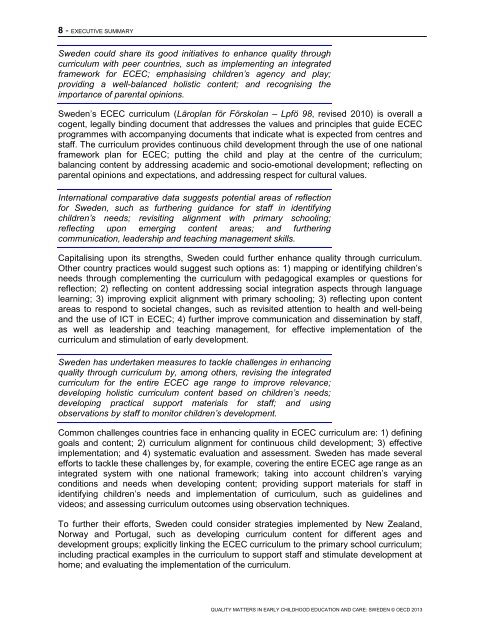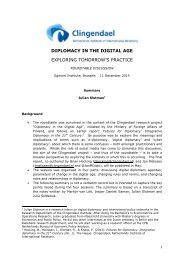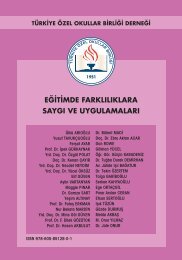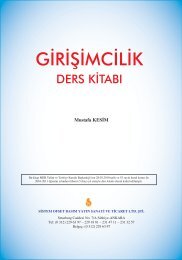SWEDEN%20policy%20profile%20-%20published%2005-02-2013
SWEDEN%20policy%20profile%20-%20published%2005-02-2013
SWEDEN%20policy%20profile%20-%20published%2005-02-2013
You also want an ePaper? Increase the reach of your titles
YUMPU automatically turns print PDFs into web optimized ePapers that Google loves.
8 - EXECUTIVE SUMMARY<br />
Sweden could share its good initiatives to enhance quality through<br />
curriculum with peer countries, such as implementing an integrated<br />
framework for ECEC; emphasising children’s agency and play;<br />
providing a well-balanced holistic content; and recognising the<br />
importance of parental opinions.<br />
Sweden’s ECEC curriculum (Läroplan för Förskolan – Lpfö 98, revised 2010) is overall a<br />
cogent, legally binding document that addresses the values and principles that guide ECEC<br />
programmes with accompanying documents that indicate what is expected from centres and<br />
staff. The curriculum provides continuous child development through the use of one national<br />
framework plan for ECEC; putting the child and play at the centre of the curriculum;<br />
balancing content by addressing academic and socio-emotional development; reflecting on<br />
parental opinions and expectations, and addressing respect for cultural values.<br />
International comparative data suggests potential areas of reflection<br />
for Sweden, such as furthering guidance for staff in identifying<br />
children’s needs; revisiting alignment with primary schooling;<br />
reflecting upon emerging content areas; and furthering<br />
communication, leadership and teaching management skills.<br />
Capitalising upon its strengths, Sweden could further enhance quality through curriculum.<br />
Other country practices would suggest such options as: 1) mapping or identifying children’s<br />
needs through complementing the curriculum with pedagogical examples or questions for<br />
reflection; 2) reflecting on content addressing social integration aspects through language<br />
learning; 3) improving explicit alignment with primary schooling; 3) reflecting upon content<br />
areas to respond to societal changes, such as revisited attention to health and well-being<br />
and the use of ICT in ECEC; 4) further improve communication and dissemination by staff,<br />
as well as leadership and teaching management, for effective implementation of the<br />
curriculum and stimulation of early development.<br />
Sweden has undertaken measures to tackle challenges in enhancing<br />
quality through curriculum by, among others, revising the integrated<br />
curriculum for the entire ECEC age range to improve relevance;<br />
developing holistic curriculum content based on children’s needs;<br />
developing practical support materials for staff; and using<br />
observations by staff to monitor children’s development.<br />
Common challenges countries face in enhancing quality in ECEC curriculum are: 1) defining<br />
goals and content; 2) curriculum alignment for continuous child development; 3) effective<br />
implementation; and 4) systematic evaluation and assessment. Sweden has made several<br />
efforts to tackle these challenges by, for example, covering the entire ECEC age range as an<br />
integrated system with one national framework; taking into account children’s varying<br />
conditions and needs when developing content; providing support materials for staff in<br />
identifying children’s needs and implementation of curriculum, such as guidelines and<br />
videos; and assessing curriculum outcomes using observation techniques.<br />
To further their efforts, Sweden could consider strategies implemented by New Zealand,<br />
Norway and Portugal, such as developing curriculum content for different ages and<br />
development groups; explicitly linking the ECEC curriculum to the primary school curriculum;<br />
including practical examples in the curriculum to support staff and stimulate development at<br />
home; and evaluating the implementation of the curriculum.<br />
QUALITY MATTERS IN EARLY CHILDHOOD EDUCATION AND CARE: SWEDEN © OECD <strong>2013</strong>








